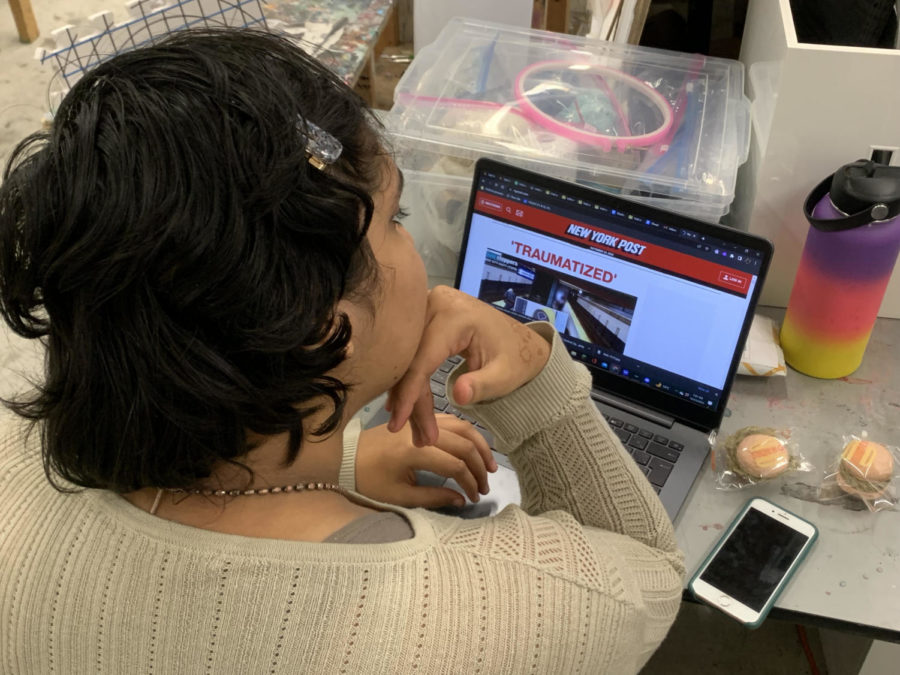Media literacy week: five key themes of dissecting information
October 24, 2022
This year, Media Literacy Week (MLW) takes place from October 24 to October 28. MLW is an annual event that takes place every October to promote media literacy across Canada. Backed by a variety of sponsors including TikTok, Meta, Twitter, YouTube and multiple provincial teachers’ unions, MediaSmarts (the non-profit responsible for MLW) aims to encourage the development of critical thinking skills and digital/media literacy among all Canadians.
The existence of MLW raises a very important question: What is media literacy and why is it important?
Media literacy is the ability to think critically and engage with all forms of media. This skill can be applied to any type of media: films, books, and visual or interpretive art; however, MediaSmarts focuses on the importance of digital literacy. Digital literacy is the ability to apply these same skills to digital and online content. Especially in today’s social climate, these skills are extremely important to avoid toxic thinking, propaganda and misinformation. With so many platforms to engage with others without borders and boundaries, understanding how to interpret media is very important.
In the past few years, there has been a notable decrease in media literacy skills among people of all ages, as well as a stark increase in dangerous online communities and ideologies. As teenagers, the internet has become integral to everyday life and function. It is important to analyze media and know what to look for. Understanding how these communities continue to grow is key in avoiding them.
How do all these examples relate to high school students?
The digital world is a huge part of teenage life at R.H. King. Especially in a large and diverse community of over one thousand students. Learning proper digital literacy will help students protect themselves and others from harmful media. All the previous examples directly, or indirectly, impact students. It is important that teenagers are able to recognize what the media is actually saying and react accordingly to create a world where medical professionals are able to protect society, minorities do not have to face mentally (or physically) harmful far-right extremists’ beliefs and toxic communities are not able to flourish online. Media literacy helps the world move in a safer direction by helping teenagers be informed and prepared.
MediaSmarts provides an excellent outline to learning media literacy. They outline five key themes of digital literacy, each with a corresponding workshop and other resources. The themes are: Use, Understand, Engage, Access, and Verify.
01. Use
MediaSmarts defines Use as “Using media tools effectively and responsibly”. It is important to make the media safe. MediaSmarts does not condemn content creation at all, in fact they actively encourage people to create media. Content creation is a balancing act. There will always be risks when dealing with the internet; MediaSmarts intends to help people avoid these risks through education and information.
02. Understand
The theme Understand is about critical thinking skills. “Comprehend, contextualize and critically evaluate”: Media does not exist in a vacuum. It is important to have an understanding of personal beliefs, behavior and emotions.
03. Engage
Engage in media. Media and the internet do not need to be feared. Media can be an excellent form of expression and communication. What is important is knowing how to interact, engage and create safety. Understanding the implications of media and being an “active contributor to digital society”.
04. Access
Access refers to choosing methods of consuming media. MediaSmarts defines this theme as “safely and ethically finding and navigating media ”. Knowing how to use the internet is an important part of digital literacy. Understand that not all content is safe or ethical to consume and know how to use your resources to protect yourself (for example, the block feature on social media). Do not be afraid to engage in media, but learn how to effectively navigate the internet.
05. Verify
Lastly, MediaSmarts’ Special Focus: Verify. This theme’s skill set is an extremely important one. Brought up earlier, lacking this skill can lead to personal and societal harm. MediaSmarts’ own definition states: “more than ever, Canadians need the skills to effectively search the internet for information, then evaluate and authenticate the sources and information they find.”. This skill relates to every other theme. It is important to be skeptical of all information on the internet, because everything on the internet has equal capacity to be true and untrue. Verification is an important skill set to know in all aspects of life.
MediaSmarts’ website goes into much more detail and provides many resources for those looking to improve their media and digital literacy skills. Media literacy is an extremely important skill for all Canadians, and all people, to have; however, it is important to note that these are skills that take practice, time, and effort to improve. Media literacy will not come easily to everyone, but everyone has the same capacity to learn and develop these skills.
Continue to engage with media and online content, but remember to be skeptical and practice the critical thinking skills needed to protect everyone. Talk to people, hear others opinions and avoid blind belief or apathy towards any and all content on the internet.
Have a very informative- and thoughtful- 2022 Media Literacy Week!

